
No matter your level, you can easily find free Spanish books to suit your needs.
Even if you think you’re not yet at the right reading level, challenging yourself with something slightly more difficult than what you’re comfortable with can have exponential benefits.
Here’s a short, quick guide to show how you can take advantage of this tool—including a list of my top 10 recommendations of free books en español.
Contents
Download:
This blog post is available as a convenient and portable PDF that you
can take anywhere.
Click here to get a copy. (Download)
Where to Find Free Spanish Books Online
There are lots of different websites and formats to choose from. Every time you think you understand how vast the internet is, it honestly gets bigger.
To name a few websites:
Loyal Books
Loyal Books is a free public domain of audiobooks and e-book downloads in a wide array of genres and languages. The interface is in English so it might be good to start here for lower level speakers.
Gutenberg
The Gutenberg Project has almost 50,000 free e-books to download. The interface may seem antiquated, but I’m sure there are some great reads waiting to be found here!
Many Books
Many Books has about 33,000 free e-books available for all formats of e-reading and a whole swathe of languages to choose from. They also request you sign up for an email list, which again could be a good reminder to keep up with your studies.
Amazon Kindle Books
Everyone knows and loves Amazon. They literally have everything and are as user-friendly as social media sites—and there are many free and cheap options to find.
If you didn’t know already, they have a free e-book section and if you simply switch to the Spanish version of the website, the free e-books will be in Spanish.
The easiest way is to download the Kindle Reading Application (available for desktop computers, tablets and smartphones) and then transfer the files to your devices—mobi or epub files work. Of course, the Amazon e-books will go directly to your reading application.
Free Spanish E-books
My recommendations below are ordered from easier to more difficult, with approximate levels for each to give you an idea. However, everyone has individual strengths and weaknesses so feel free to hop around to different levels!
1. “An Elementary Spanish Reader” by Earl Stanley Harrison

A1 | 123 pages
This Amazon e-book comprises 21 short stories, all designed for the novice Spanish speaker. There’s even a vocabulary index in the back!
This is a good place to start because the stories are short so you’re less likely to get discouraged.
2. “La Mitología para los niños” by Fernán Caballero
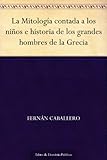
A1 | 248 pages
Remember high school mythology class with all the battles and love triangles and magical creatures? Well, this is a primer to give children an introduction to mythology.
It’s a little more advanced than the elementary reader above, but a good starting point, as it’s intended for children. Most of us are already a little familiar with Greek mythology, so some of the stories might be more understandable.
3. “Fortuna: Historia de un perro agradecido” by Enrique Pérez Escrich
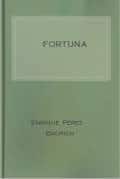
A2 | 80 pages
Love animals? “Fortuna” is probably the most popular dog story in Spanish. It makes pleasant reading, it holds the reader’s interest throughout, and its language is clear and simple.
Pérez was a master of the serial story (or folletín) in which fictional dramas are characterized by an intense pace, implausible plot and psychological simplicity, making his works both entertaining and easy to understand.
4. “Los Extraños trabajos de Paulino y Eusebio” by Eloy Barba Dominguez
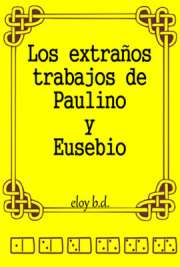
A2 | 80 pages
This is a story about working towards your dreams. It’s about two friends trying to become rock stars by buying the perfect drum set. They need money though and the story follows all the odd jobs they come across along the way.
This story is relatively short compared to the other suggestions, but it is very good for practicing the past tenses. Friendship, adventure, music. Who could want more?
5. “Novelas cortas” by Pedro Antonio de Alarcón
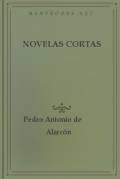
A2 | 251 pages
Written by acclaimed Andalusian author Pedro Antonio de Alarcón, these novelas were originally published in 1882 and offer insight into Spanish life and history.
They are short stories as well, so it’s easier to follow for a new learner. If you love historical fiction, this might be the choice for you!
6. “Spanish Tales for Beginners” by Louis Reinhardt and E.C. Hills
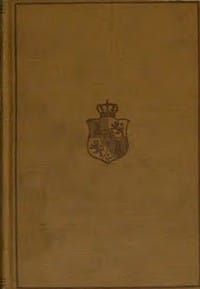
B1 | 356 pages
This collection contains multiple works by acclaimed Hispanic authors, including some poetry. This is another compilation you can jump around in to find something that grabs your attention.
I know the title says “Beginners,” but the content includes subjunctive and other advanced tenses, which I believe is more suited for learners at a level B.
7. “Vida de Lazarillo de Tormes” by Anonymous

B1 | 85 pages
If you’ve taken any formal Spanish literature classes during your studies, you have no doubt heard about Lazarillo. This piece is the first known modern Spanish novel, and its author is considered the founder of the picaresca literary genre.
This style of prose depicts the adventures of a lower class, roguish hero who lives by his wits in a corrupt society. The story follows a little boy, Lazarillo, who is left to become the apprentice to a blind man, while also serving other masters.
8. “El Sombrero de tres picos” by Pedro Antonio de Alarcón

B2 | 283 pages
Written by the same author as #5’s “Novelas cortas,” this story depicts the tale of a wealthy magistrate in love with a miller’s wife and his attempts to seduce her. Different century, same problems.
The story became so popular, it was eventually turned into a ballet.
9. “El Capitán Veneno” by Alarcón
B2 | 219 pages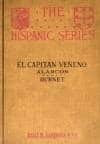
Another by Alarcón, this is the story of a famed fire-eater. Set in mid-nineteenth century Spain and based on historical fact, the story follows a captain’s “domestication” through love during a time of social change, eventually leading to the strengthening and rethinking of societal principles.
10. “Don Quijote” by Miguel de Cervantes

C1 | 425 pages
Considered a Spanish masterpiece, Miguel de Cervantes’ novel follows a nameless hidalgo who sets out on an adventure under the name Don Quixote, and is later joined by farmer Sancho along the way.
Why Reading in Spanish Will Improve Your Language Skills
- Reading is considered more effective than watching television. Even reading at a slower pace than what you’re used to exposes you to more sentences per minute than the average telenovela. Definitely don’t stop watching Spanish TV, but rather start balancing it out with reading time.
- Reading also teaches you new vocabulary words via context clues. When reading in your native tongue, and a new word comes up, you can somehow guess its meaning simply by the sentence’s syntax, or structure.
- Conversational learning is not enough to reach an upper level of competence. This includes mastering more complex verb tenses, as well as vocabulary acquisition.
- Reading books is intellectually stimulating. Developed plot lines and diverse genres will keep you interested for an extended period of time.
- Experience genius literary works in their original language. Once you reach a middle- to upper-level competency, you can enjoy the works of lauded Hispanic authors—like Gabriel García Márquez, Isabel Allende and Pablo Neruda—which deserve to be read in their original language.
Anyone at a C2 level is ready to peruse a bookstore and read like a native speaker.
So there you have it. A free, easy way to continue investing in your language education!
Download:
This blog post is available as a convenient and portable PDF that you
can take anywhere.
Click here to get a copy. (Download)



